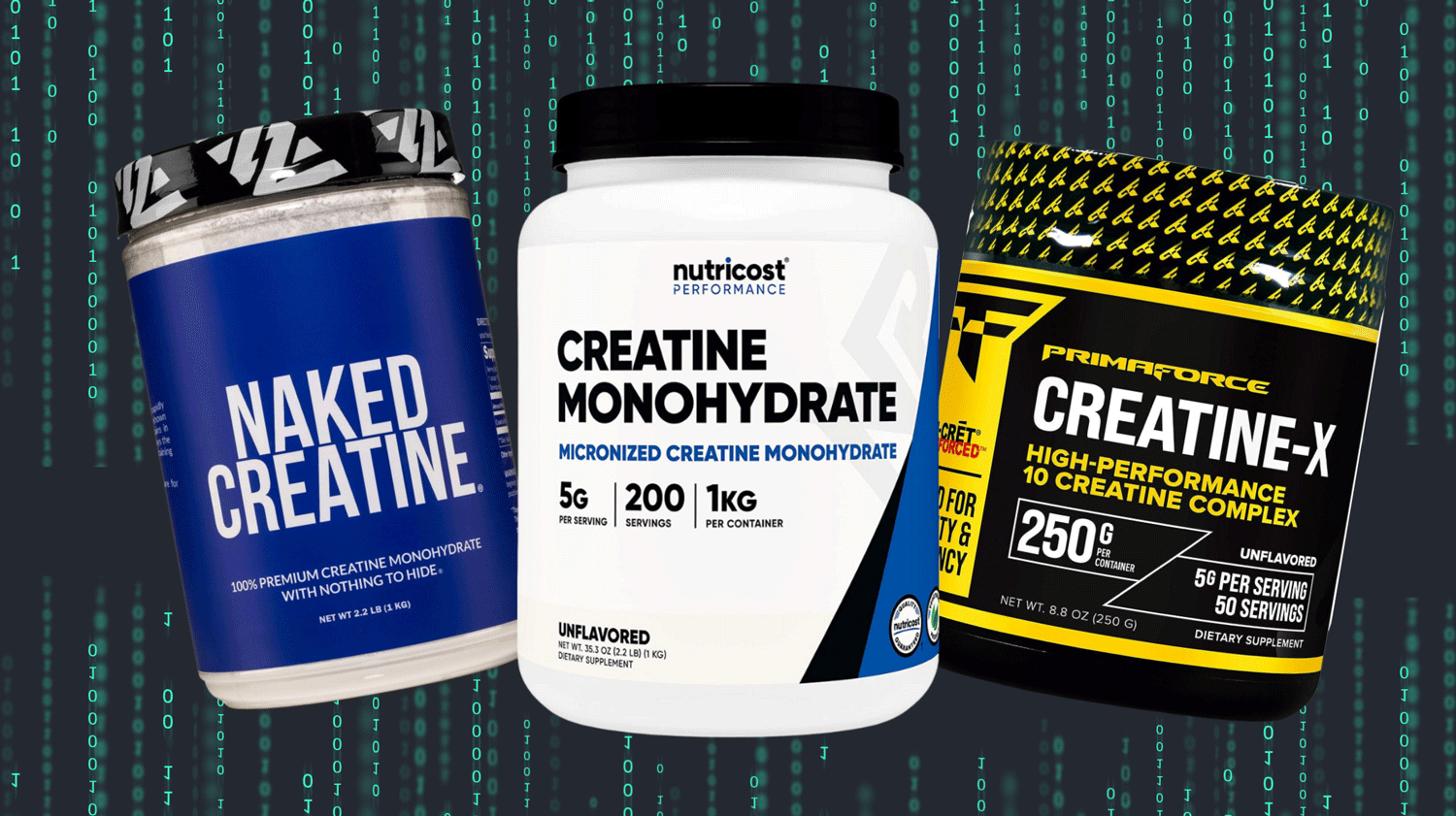Does Creatine Make You Gain Weight?
(And Is this Even Something You Should Care About?)


Creatine stands out as a premier, research-backed supplement, proven to amplify performance, whether you’re lifting weights or sprinting. Its consistent use is deemed safe for most individuals, and beyond its athletic advantages, creatine is recognized for its potential to enhance brain health and combat age-induced muscle decline.
The topic of weight gain, especially in the world of fitness and athletics, often brings with it a cloud of apprehension. For many, the mere thought of adding extra pounds is daunting, particularly when the goal is to achieve peak performance or sculpt a specific physique.
Enter creatine, a supplement renowned for its performance-enhancing properties. But with its benefits comes a pressing concern: the potential for weight gain.


WHAT IS OUR #1 CREATINE SUPPLEMENT?
Check Our Ranking of the 12 Best Creatine Supplements for 2023
Is the potential weight gain from creatine a worthy trade-off for its benefits?
To answer this, we need to dive deep into how creatine impacts our bodies. While it’s widely recognized for enhancing athletic prowess, creatine’s value extends further. It actively combats the muscle deterioration that comes with age. This positions creatine not merely as a temporary boost for athletes but as a lasting partner in preserving muscle vitality.
But knowledge is only half the battle. The real challenge lies in its practical application. By thoughtfully integrating creatine into your daily routine, you can tap into its full potential without compromising your weight goals.
As we journey through this topic, you’ll gain the clarity required to make confident choices. Embrace creatine’s strengths, and you’ll be well on your way to achieving peak performance without sacrificing your desired physique.
The Power of Creatine
Creatine isn’t just another compound; it’s a powerhouse crafted within your body. Formed in the kidneys and liver, it’s the result of a precise combination of amino acids: arginine, glycine, and methionine. Its primary role? Fueling your skeletal muscles, where it’s stored and ready to supercharge your physical activities.
But how does creatine truly work its magic?
While it doesn’t directly provide energy, it plays a crucial role in energy production. Think of creatine as a master switch. It donates its phosphate group to adenosine diphosphate (ADP), converting it back into the much-needed adenosine triphosphate (ATP) – our body’s primary energy currency.
This seamless conversion ensures that our muscles have a steady energy supply, enhancing both performance and stamina.


Where Can You Get Creatine?
While meat is a natural source, the amounts are often minimal. This is where supplementation steps in, offering a more concentrated and consistent dose to meet your needs.
When evaluating supplement choices, creatine monohydrate undoubtedly stands at the forefront. It’s not just about its effectiveness; it’s also about the unparalleled value it provides.
With its impressive bioavailability, the body can absorb and utilize it seamlessly. Its stability, even at room temperature, ensures longevity and ease of use. For those committed to maximizing the advantages of creatine, there’s no better choice than creatine monohydrate.
Understanding Creatine and Weight
The Weight Dynamics of Creatine Loading
Unlocking Muscle Growth with Creatine
How to Avoid Creatine-Induced Weight Gain


Do Other Side Effects of Creatine Exist?
Remarkable Benefits of Creatine
Creatine Fuels Your Workout
Muscle Growth and Recovery with Creatine
Creatine’s Brain Health Benefits
Emerging research indicates that incorporating creatine into your supplement regimen extends beyond muscle development and athletic abilities. In fact, there’s a strong case to be made that creatine can play a vital role in enhancing brain health for specific demographics. Within the intricate machinery of the human brain, creatine emerges as a critical player.


The Final Word
Creatine supplementation is a compelling strategy for optimizing your overall health and performance. Despite the potential for minor water retention, the benefits it brings to the table are truly remarkable.
So, why should you consider incorporating creatine into your daily routine? Let’s address the water weight issue first. While creatine may lead to a temporary increase in your body’s water content, resulting in a slight bump on the scale, rest assured that your body expertly regulates its water levels.
This should not deter you from embracing the transformative effects of creatine. Interestingly, the boost in water within your muscle cells can serve as a promising indicator of how your body responds to creatine supplementation.
It’s like a sneak peek into the incredible gains that lie ahead. If you’re an athlete who closely monitors your body weight, especially for weight-bound sports like powerlifting or weightlifting, it’s prudent to consider this “side effect” beforehand.
However, it’s crucial to recognize that this fleeting weight increase should not overshadow the substantial benefits that creatine offers.
Your Creatine Questions… Answered.
Check out these related articles to learn more about creatine:

